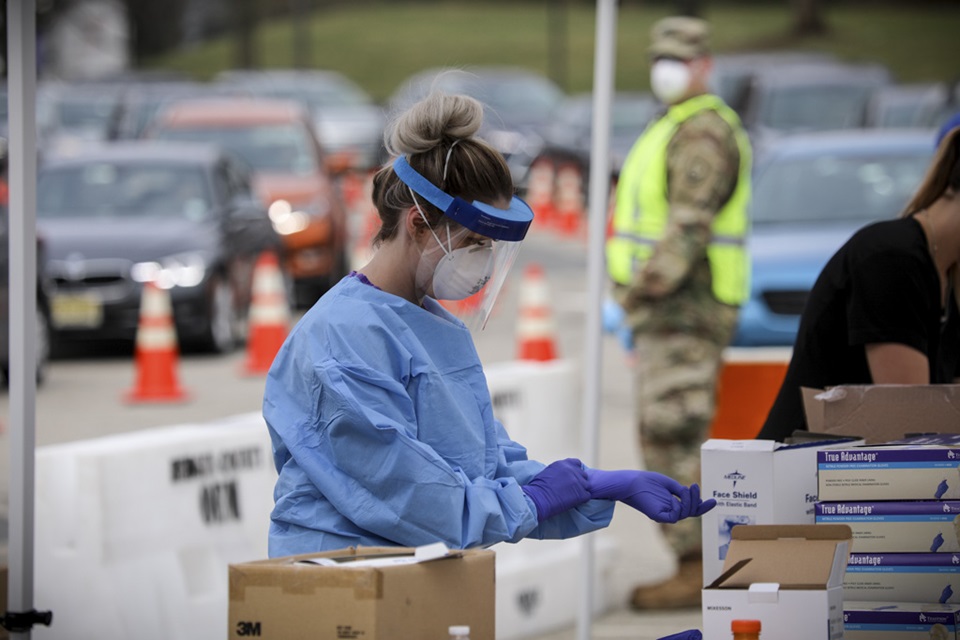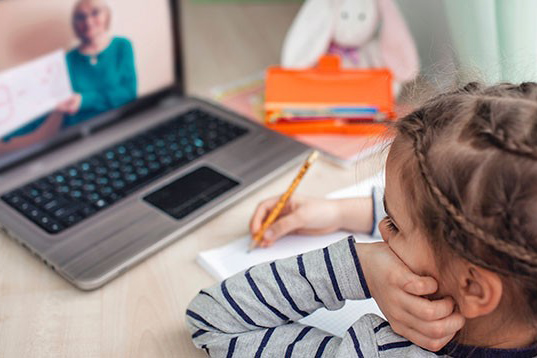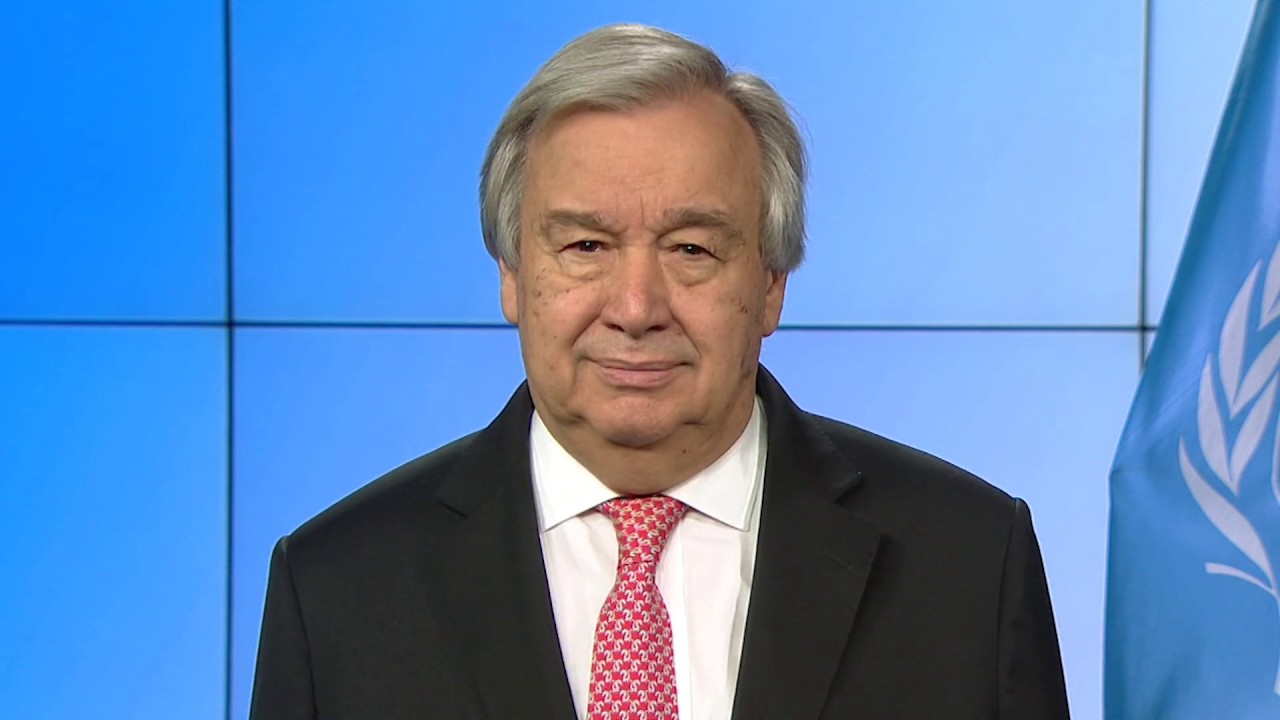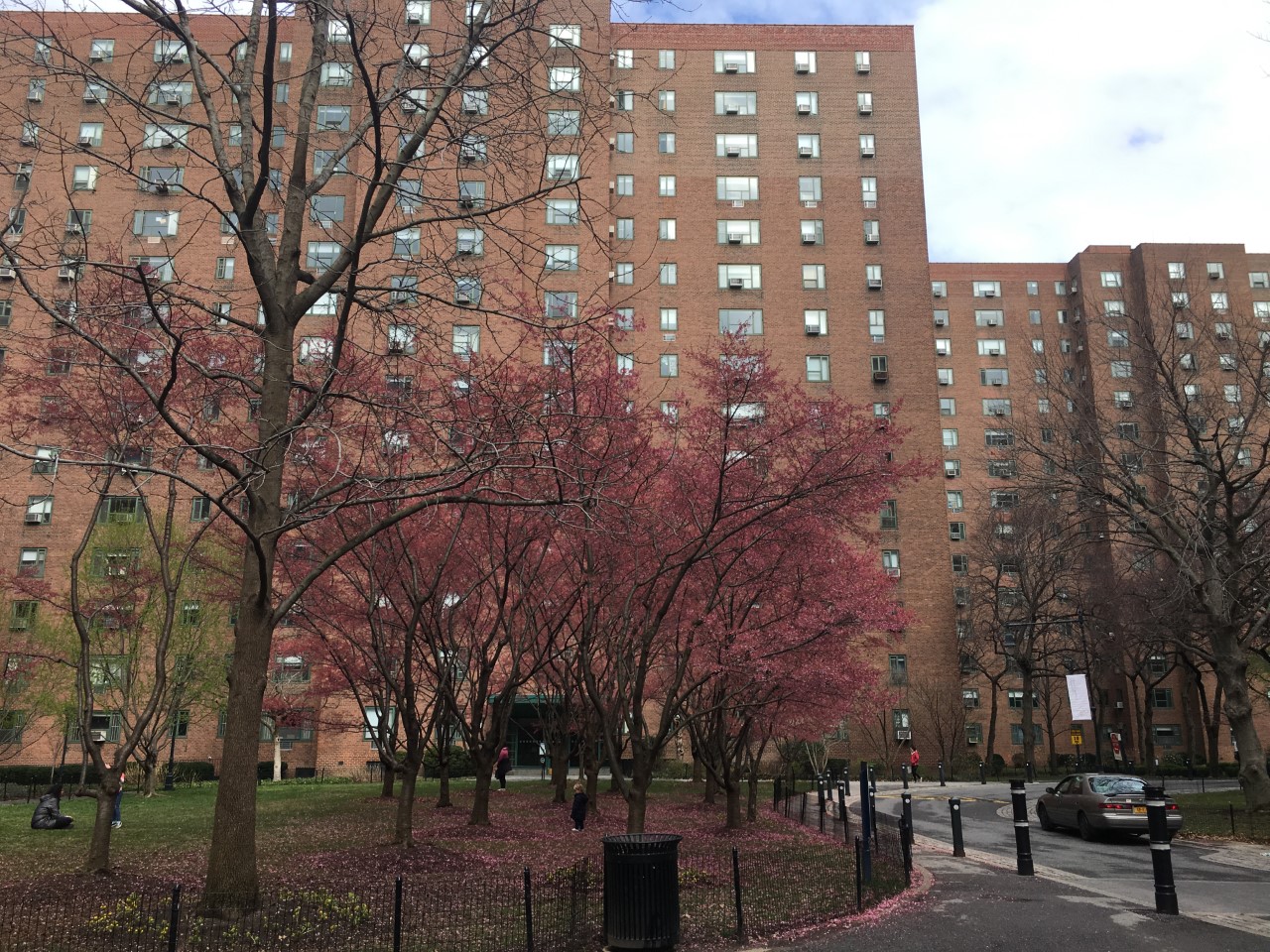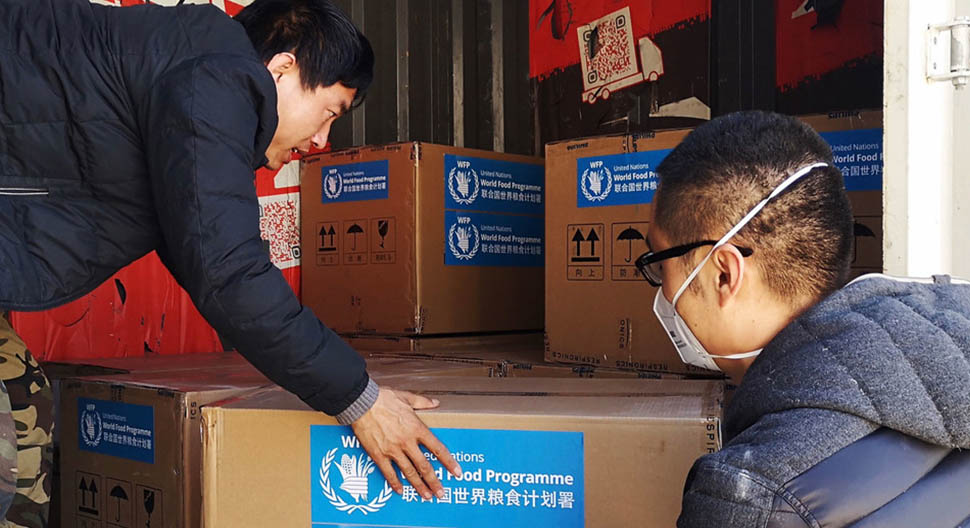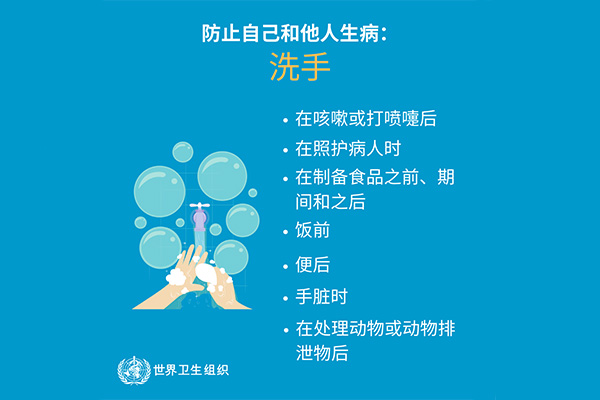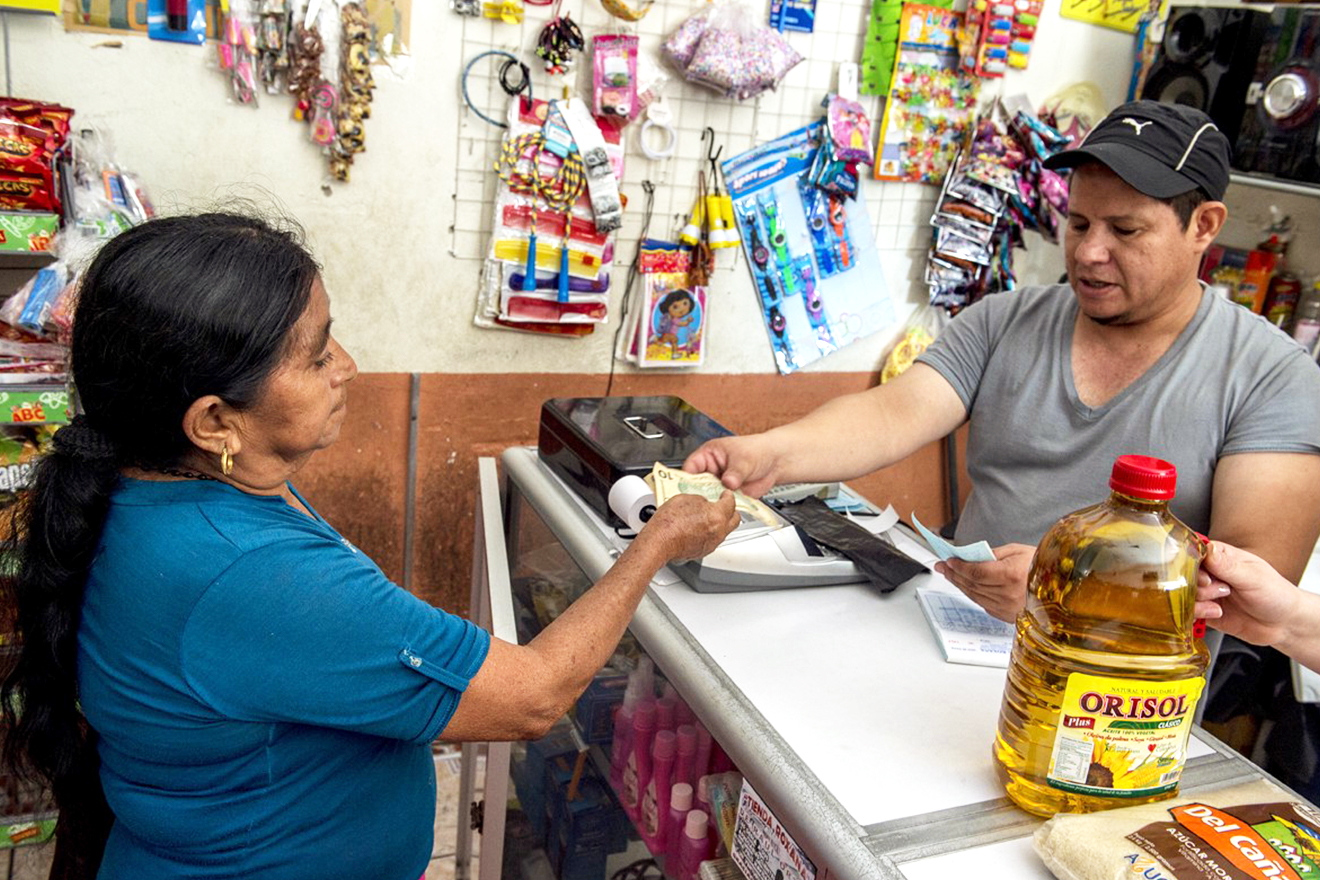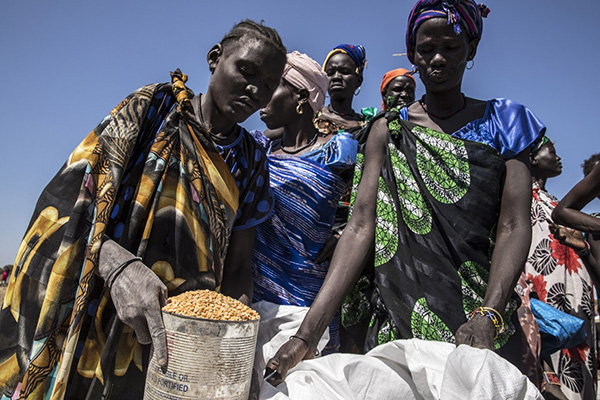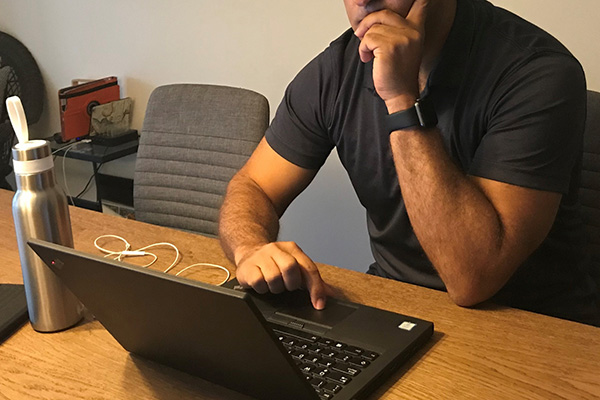A new assessment by the International Labour Organization (ILO) shows the COVID-19 pandemic could increase global unemployment by around 25 million.
Health
Beyond a health issue, the COVID-19 pandemic is a profound shock to our societies and economies, with women at the heart of care and response efforts. As frontline responders, health professionals, community volunteers, transport and logistics managers, scientists and more, women make critical contributions to address the outbreak. The majority of caregivers, at home and in our communities, are also women. UN Women is bringing up-to-date information and analysis on how and why gender matters in COVID-19 response.
To help counter the fast-spreading Covid-19 virus in Armenia, the TOSP apparel manufacturer is diversifying production to include medical masks. The TOSP Knitting Factory, located in the Malatia-Sebastia district in the western part of the capital, Yerevan, has set up a sterile area on the factory floor and has adjusted production lines to ramp up supplies of medical face masks for health care workers and vulnerable citizens. TOSP is currently manufacturing around 2,000 masks a day.
As school closures impact more than 80% of the world’s student population, UNESCO convened an online meeting of education ministers, to share information on measures deployed to support teachers, parents and students in coping with home learning. They also pointed to emerging challenges that require global cooperation. UNESCO is launching a global education coalition to support countries in scaling up their best distance learning practices and reaching children and youth who are most at risk.
To best respond to the COVID-19 pandemic, UN Secretary-General António Guterres calls on world leaders to come together and offer an urgent and coordinated response to this global crisis. The three-part action plan includes first tackling the health emergency. Second, placing focus on the social impact and the economic response and recovery. Third, and finally, prioritizing the responsibility to "recover better." In this unprecedented situation the normal rules no longer apply and the magnitude of the response must match its scale. The world faces a common enemy. We are at war with a virus.
As the coronavirus outbreak spreads to more countries, so does solidarity among people everywhere. As the United Nations continues to help countries counter the outbreak and protect the most vulnerable, New York staff do their part locally. About 20 to 30 blocks south of United Nations Headquarters in New York lies Stuyvesant Town, a community of more than 30,000 residents. A neighbor gives art supplies to a home-schooled child. Others are volunteering to administer wellness checks for seniors and people with disabilities, food/water delivery and pet assistance.
With the coronavirus crisis spreading to more countries with broader social and economic implications, the United Nations is mobilizing its global workforce to help affected Governments to contain or slow the onslaught of this deadly disease. While the World Health Organization (WHO) continues to lead the global fight against the spread of COVID-19, around the world, UN teams are also working with authorities to support national preparedness and response plans, including immediate health priorities and broader social and economic impacts.
What if students could shape solutions to help people forced to flee their homes? UNHCR, the UN Refugee Agency, is challenging Model United Nations delegates worldwide to debate the major issues related to forced displacement.
Women health workers are critical in the effort to contain COVID-19 in Iran. Listen as they speak about their courage, sacrifice and gender-equal role as frontline responders to the public health crisis.
A decline in COVID-19 cases in China demonstrates that containment efforts can help alter the course of the pandemic. That’s the opinion of Dr. Gauden Galea, the World Health Organization (WHO) Representative in the country.
How to Minimize the Impact of Coronavirus on Food Security
True to its nature as an agency always on the frontline of the toughest emergencies, WFP is already providing support in the response to the novel Coronavirus (COVID-19) pandemic and adapting its planning to ensure operations can carry on in a highly volatile environment. WFP is providing support to governments’ preparedness and response efforts, including the delivery of life saving equipment and protective medical gear, as well as food for those in isolation and refugees.
UNIDO in Uruguay issued working from home in line with the government’s quick reaction to the first reported case of Covid-19 in the country. UNIDO works in close contact with local stakeholders in the private and public sectors placing its staff at the UNIDO office or at a national ministerial office. All staff are now working remotely meeting regularly through mobile apps or teleconferencing. This crisis tests the benefits of working from home, including a smaller carbon footprint.
In an effort to shorten the time to recovery, the World Bank Group approved today an increase of fast-track financing to assist companies and countries in their efforts to respond to the rapid spread of COVID-19. The package will strengthen national systems for public health preparedness, including for disease containment, diagnosis, and treatment, and support the private sector. The World Bank Group is committed to a fast, flexible response based on the needs of developing countries.
It’s easy to feel overwhelmed by everything you’re hearing about coronavirus disease (COVID-19) right now. It’s also understandable if your children are feeling anxious, too. Children might find it difficult to understand what they are seeing online or on TV – or hearing from other people – so they can be particularly vulnerable to feelings of anxiety, stress and sadness. UNICEF recommends open and supportive conversations with your children to help them understand, cope and help others.


